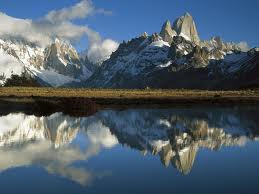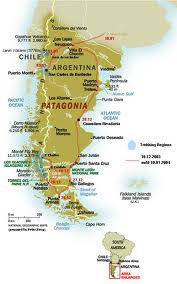Patagonia Protests Lead Energy Giant to Backpedal on Chile Dam
 Chile’s biggest dam project, already saddled by protests over plans to flood 14,000 acres of Patagonia wilderness, suffered a fresh setback after one of its investors said the venture lacks political support to proceed.
Chile’s biggest dam project, already saddled by protests over plans to flood 14,000 acres of Patagonia wilderness, suffered a fresh setback after one of its investors said the venture lacks political support to proceed.Santiago-based power company Colbun SA (COLBUN), which holds 49 percent of 2,750-megawatt HidroAysen, said last night it wants to indefinitely suspend plans to seek environmental permission to build transmission lines to the capital. Empresa Nacional de Electricidad SA, known as Endesa, owns the remaining 51 percent.
Colbun, in a statement filed with Chile’s securities regulator, said the country needs broader consensus on its energy policy before HidroAysen can advance. Nationwide protests against the dam, plus delays in other generation projects, have investors concerned the state isn’t providing enough support, Celfin Capital SA’s Cesar Perez said.”This is a project that has tremendous opposition, not only at the domestic level but also at the international level,” Perez, a managing director of the Santiago-based financial services company, said in a phone interview. “They’re not killing the project. What Colbun wants is a guarantee the government will safeguard the investment.”
Colbun said it is open to making changes to HidroAysen’s construction plans and ownership structure. Centrales Hidroelectricas de Aysen SA, the joint venture company developing HidroAysen, will consider Colbun’s recommendations in future meetings, it said in a regulatory filing yesterday.
Brazil’s Centrais Eletricas Brasileiras SA (ELET6), known as Eletrobras, is in talks to invest in the project, La Tercera newspaper reported April 29.
Cash Flows
Investors may be unfazed by yesterday’s setback, which doesn’t affect the owners’ cash flows, Perez said. Colbun fell for the first time in five days, declining 0.3 percent to 137 pesos at 10:32 a.m. in Santiago while Endesa, as the project’s senior partner is known, was little changed.
HidroAysen involves building five dams for an estimated $3.2 billion and 1,900 kilometers (1,180 miles) of transmission line to feed the grid that supplies Santiago as well as copper mines operated by state-owned Codelco and Anglo American Plc. (AAL)
The Chilean government has been exploring the hydroelectric potential of the Baker and Pascua rivers in the Aysen region since the 1940s. Endesa and Colbun presented the first study on the project in 2007 and won environmental approval last year to build the dams.
Vulnerable Species
Environmentalists including Douglas Tompkins, who walked away from his Esprit Holding Ltd. clothing company and moved two decades ago to Patagonia to buy up land for conservation, say the power lines would scar protected areas that are home to 13 endangered and vulnerable animal species, including the pudu, the world’s smallest deer. Protests against the project last year led to hundreds of arrests and millions of dollars in damage to public property.
 Chile, which is the world’s top copper producer, needs to double its electricity generating capacity as mining companies such as Codelco and BHP Billiton Ltd. (BHP) plan $100 billion of expansions, according to Chilean mining society Sonami. Codelco and BHP have called on the government to speed up permitting for new power generators.
Chile, which is the world’s top copper producer, needs to double its electricity generating capacity as mining companies such as Codelco and BHP Billiton Ltd. (BHP) plan $100 billion of expansions, according to Chilean mining society Sonami. Codelco and BHP have called on the government to speed up permitting for new power generators.The government devised a 20-year energy plan earlier this year and is working with Congress to further improve the investment climate, Energy Minister Jorge Bunster wrote in an e- mailed statement following Colbun’s announcement. Government intervention has also dissuaded energy investments. In 2010, President Sebastian Pinera asked GDF Suez (GSZ) SA, Europe’s largest natural-gas network operator, to scrap plans to build a 540-megawatt coal-fired power plant on the coastal site of Barrancones after environmental opposition.
Pinera Backlash
Colbun will wait until Pinera leaves office in 2014 before trying to build HidroAysen, said Patricio Navia, a Chilean political scientist. The billionaire investor’s approval rating stood at 24 percent in April, the lowest of any Chilean president since the return of democracy in 1990, as student protests erode support for the government.
“They don’t want their project to go down with Pinera,” Navia, who teaches at New York University, said by phone from Santiago. “Everyone knows that HidroAysen is going to get built eventually. So why not do it when there’s less opposition?”
You can return to the main Market News page, or press the Back button on your browser.

